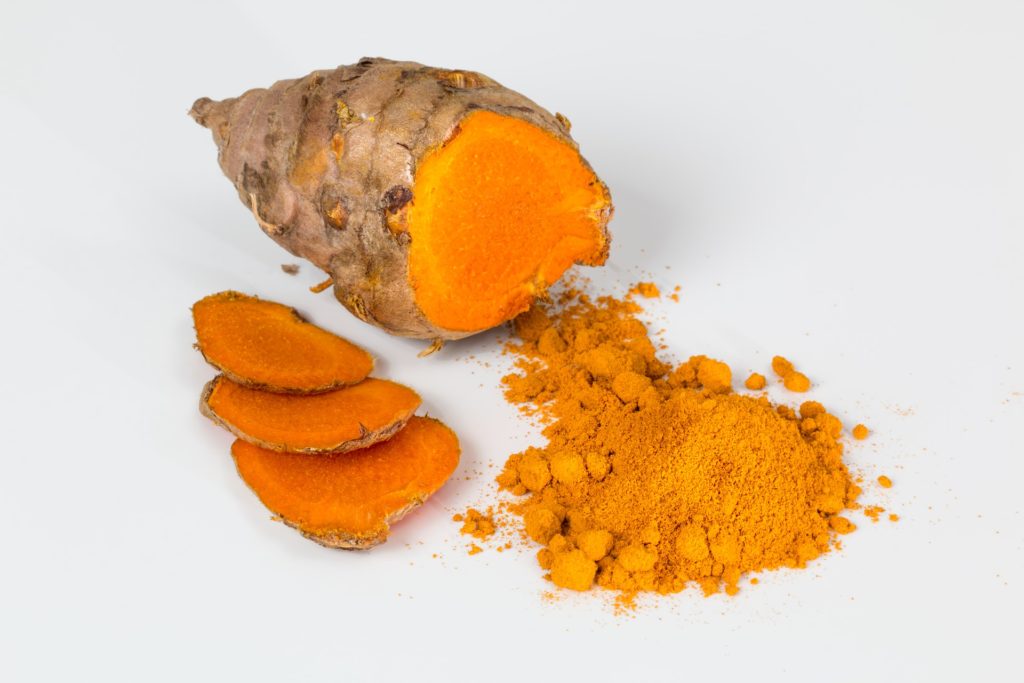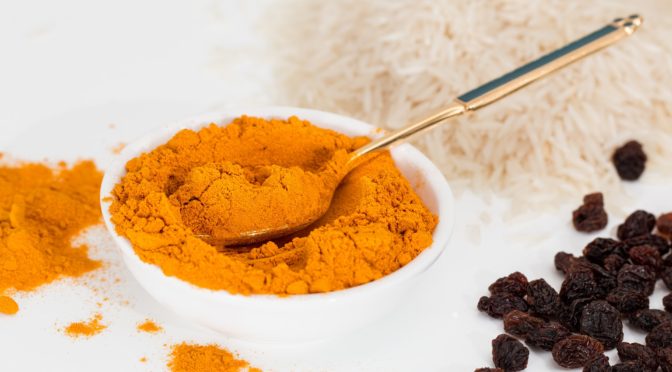Turmeric Medicinal Uses: Turmeric has been used in alternative medicine as a possibly effective aid in reducing blood cholesterol, reducing osteoarthritis pain, or relieving itching caused by chronic kidney disease.
Turmeric has also been used to treat upset stomachs, but there is little scientific research to support these uses.
It is not certain whether turmeric is effective in treating any medical condition. The medicinal use of this product has not been approved by the FDA. Turmeric should not be used in place of medication prescribed for you by your doctor.
Turmeric is often sold as an herbal supplement. There are no regulated manufacturing standards in place for many herbal compounds and some marketed supplements have been found to be contaminated with toxic metals or other drugs.
Turmeric may also cause nausea or diarrhea, especially in large doses.
Curcuma longa, or turmeric, is a perennial plant of the ginger family. Turmeric has been used in India for thousands of years as a spice and medicinal herb. To the untrained eye, turmeric looks like ginger root. The flesh of turmeric is bright orange and the skin is yellow-brown. In its powdered form, it has a deep orange-yellow color.
Turmeric has traditionally been used in Ayurvedic medicine for a variety of ailments including breathing problems, rheumatism, serious pain, and fatigue. Turmeric is also thought to purify the body and act as a natural detoxifying agent.
The use of turmeric for medicinal purposes dates back nearly 4,000 years to the Vedic culture in India, where it was used as a culinary spice and had some religious significance.

Common Kitchen Ingredient
Turmeric is a common kitchen ingredient, but it is also known for its medicinal value. It is used in ayurvedic medicine to treat various ailments. Turmeric has been proven to be beneficial against a number of illnesses like arthritis, diabetes, and even cancer.*
Turmeric medicinal uses can boost immunity. Curcumin present in turmeric helps the body fight infections by stimulating the immune system. It also helps eliminate free radicals that can damage cells. A daily dose of turmeric can help keep colds at bay.
Turmeric is also useful against skin ailments like eczema, psoriasis, and acne. It helps reduce inflammation and soothes dry skin. It also helps moisturize your skin from within and gives you a natural glow. For people who are prone to acne due to hormonal imbalance, turmeric can help reduce breakouts by controlling the oil secretion inside your body.
Top 3 Turmeric Supplements
Wisdom Daily Christian Supplement
Turmeric for Pain Relief
Turmeric is known as a spice that gives curry its flavor and color. But this root, which is related to ginger, has been used in Asia for thousands of years to treat a number of health conditions. In recent years, researchers have found that curcumin, the active ingredient in turmeric, may have powerful anti-inflammatory properties.
For example, a study published in the March 2015 issue of Pain Medicine found that curcumin significantly reduced pain by suppressing inflammation in mice with inflammatory bowel disease.
Curcumin has also been shown to be effective against chronic pain caused by arthritis and cancer.
Turmeric Daily for Pain Relief
If you want to try turmeric for pain relief, it’s important to note that research suggests you need a high dose — between 500 milligrams (mg) and 2 grams (g) per day — to experience its benefits.
To get the most out of your turmeric supplement, take it with black pepper or piperine. This compound enhances curcumin’s absorption into your bloodstream.
Turmeric is a plant that has a very long history of medicinal use, dating back nearly 4,000 years. It’s native to southern Asia and India and has since spread to Central America and Africa. Today, it’s cultivated in many countries around the world.
Turmeric medicinal uses have anti-inflammatory properties, which can be helpful in treating pain caused by conditions like arthritis.
If you’re interested in trying turmeric for pain relief, there are several ways to add it to your health routine:
As a tea
As a supplement (capsule or powder)
As a food seasoning
Turmeric has long been used in Ayurvedic medicine, a traditional system of healthcare that developed in India thousands of years ago. It contains a compound called curcumin, which is thought to be responsible for most of its health benefits.

Lower Risk of Heart Disease
Turmeric is a type of herb that has been used for centuries to treat many different ailments and types of pain. It’s also known as curcumin, which is the main ingredient in turmeric. It’s this ingredient that gives turmeric its yellow color.
Research suggests that turmeric can be used to prevent or treat heart disease. But how much turmeric should you take to lower heart disease risk? The answer may surprise you.
You should take your turmeric in an oil base, such as coconut oil, or with black pepper. Not only does the black pepper make the turmeric more bioavailable, but it also helps lower heart disease risk. However, in order to get the same benefits as one teaspoon of fresh turmeric root powder a day, you will need to consume three tablespoons of fresh turmeric root powder a day. It is better to take curcuminoids on an empty stomach unless you are taking them with piperine in which case you can take them alongside food.
It’s an old Indian trick: add turmeric to your food, and you’ll feel better. Now, a study set to be published in the American Journal of Cardiology seems to show that this “old Indian trick” does just that – and more: it lowers heart disease risk.
The study involved some 1,000 subjects with heart disease who were given various doses of curcumin (the main component of turmeric) and followed for a year. By the end, the curcumin had lowered blood markers of inflammation by 65 percent and LDL (“bad”) cholesterol by 34 percent.
Turmeric as a Digestion Aid
Turmeric is a natural anti-inflammatory that can help treat inflammatory bowel disease and irritable bowel syndrome.
Turmeric helps in reducing gas and bloating from various digestive disorders such as indigestion, ulcerative colitis, and Crohn’s disease.
Curcumin in turmeric helps in stimulating the gallbladder to produce bile, which helps in digesting fat and reduces bloating.
Research shows that curcumin, a compound in turmeric, can help reduce symptoms of gas and bloating.
For years, Ayurvedic medicine has used turmeric to treat gas, indigestion, and other stomach issues. Research now supports this practice. A 2009 study showed that curcumin, a compound in turmeric, helps reduce indigestion symptoms caused by a fatty meal. It may also reduce bloating after eating and during menstruation.
Turmeric’s Active Ingredient is Curcumin
Turmeric’s active ingredient is curcumin. Curcumin can help ease gas and bloating because it stimulates the gallbladder to produce bile, which is needed for proper fat digestion. Fatty foods stimulate the gallbladder to release bile into the small intestine, where it breaks down fat molecules into smaller pieces that the body can absorb.
If you don’t have enough bile when you eat fatty foods, your body won’t be able to digest them properly. You may experience some discomfort or abdominal pain from the undigested food sitting in your intestines.
Turmeric is a root that has many medicinal purposes, but its most well-known benefit is its anti-inflammatory properties. Curcumin, the active component in turmeric, may prevent and treat inflammation throughout the body. Additionally, research suggests that turmeric can improve digestive health by killing harmful bacteria and reducing inflammation of the colon.
Explore Further
Conclusion
The evidence so far suggests that turmeric is a notable candidate for further study as a potential anti-cancer therapy. It has been suggested that curcumin has some anti-leukemic properties, and may be able to induce apoptosis in human leukemia cells.
The effects of curcumin on prostate cancer cell proliferation were examined in a recent study and found to be mediated through ceramide production, resulting in growth inhibition.
Curcumin has also been shown to inhibit the angiogenesis of glioblastoma multiforme brain tumor cells. Other studies have demonstrated the ability of turmeric to inhibit vascular endothelial growth factor (VEGF) induced angiogenesis and tumor growth.
Curcumin can similarly inhibit microtubule formation of glioblastoma multiforme cells. In another study, curcumin was found to induce apoptosis in human colon cancer cells by down-regulating the expression of telomerase activity and telomerase reverse transcriptase (TERT) mRNA, as well as up-regulating the expression of p53 protein and Fas mRNA.
Turmeric is a spice derived from the turmeric plant. It is commonly used in Asian food. You probably know turmeric as the main spice in curry.
It has also been used for thousands of years as a medicinal herb. Currently, there are over 10,000 peer-reviewed articles published proving turmeric benefits, especially one of its renowned healing compounds, curcumin.
The list of health benefits attributed to this compound continues to grow as modern science is beginning to back up what the ancients have known for quite some time.
For example:
Turmeric can prevent heart disease by helping remove plaque from arteries and keeping cholesterol levels down.
It can help with depression because it stimulates neurogenesis and neuroplasticity, two ways that our brain creates new neurons and rewires existing ones.
The Health Wealth Lifestyle has provided this article on turmeric medicinal uses for informational purposes only. Please consult your healthcare professional as you see fit.
Disclosure: I may receive affiliate compensation for some of the links above at no cost to you if you decide to purchase anything. This site is not intending to provide health or financial advice. This is for entertainment only. Please consult a professional as you see fit.
